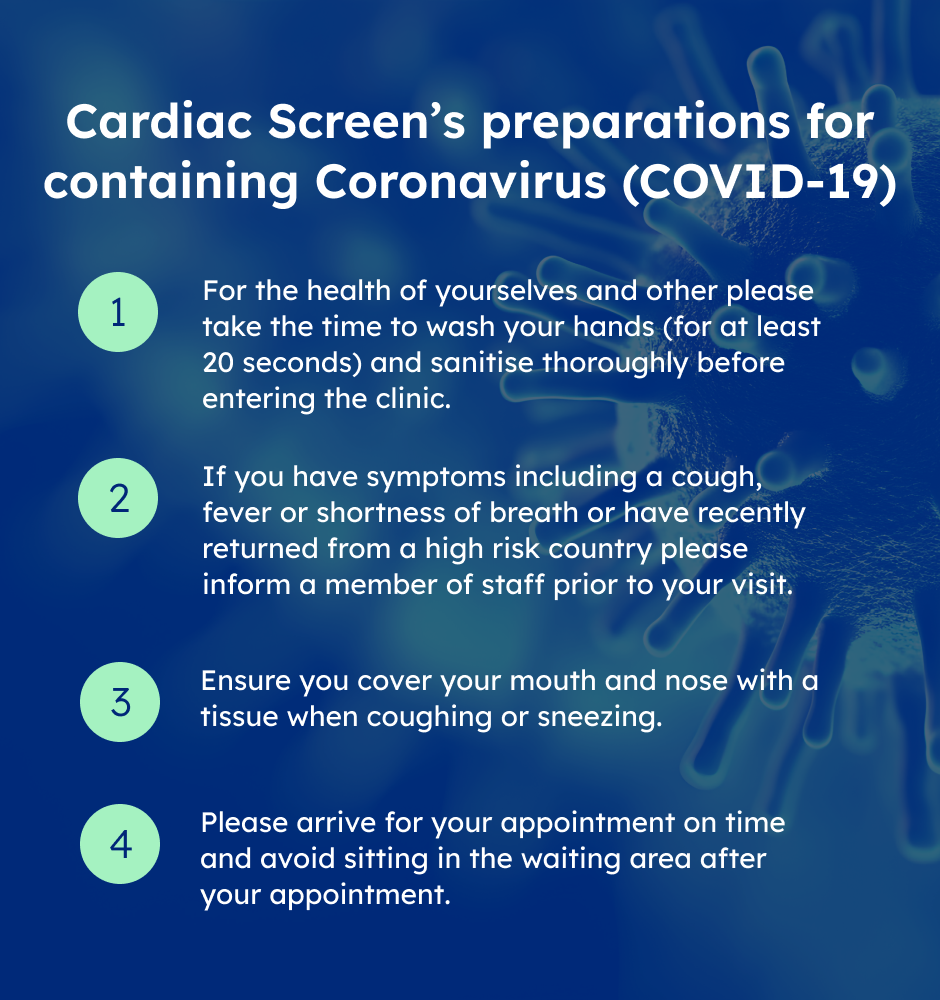Please click here to view Cardiac Screen's preparations for containing Corona Virus
Balppa House, 57-61 Newington Causeway, London SE1 6BD
Aneurysm & Heart - Symptoms, Causes, Diagnosis & Treatment
Meet Our Medical Specialists
Aneurysms
What is an aneurysm? Are aneurysms life-threatening? Aneurysm is a bulge or a disproportionate stretching of the wall of an artery, vein or the heart itself. Generally there is a stretching/bulge exceeding 1.5 to 2 times the normal size of the blood vessel. Aneurysms and heart health problems co-exist almost always side by side.
Types of aneurysm
Aneurysms can happen in any blood vessel, and but the ones in need of medical follow-up are found in
-
Abdominal aorta
-
Heart and thoracic aorta
-
Brain arteries
The rupture of an aneurysm in above areas may prove fatal despite emergent medical care. Cardiac aneurysm is when it occurs in heart muscle mostly in left ventricle. Monitoring the aneurism and heart screens are the first line of defence against aneurisms.
What can cause aneurysms?
The common causes for aneurysm and heart problems result from unhealthy life style resulting in
-
High blood pressure
-
High cholesterol
-
Atherosclerosis deposit build-up
Other reasons can be
-
Injured artery
-
Congenital malformation
-
Smoking
-
Stress
These causes result in build-up of aneurysm, its growth leading to rupture of aneurysm. Heart aneurysms can happen just after a major heart attack in scarred/dead left ventricle tissues and rupture of this aneurysm is almost fatal.
Signs & symptoms of aneurysm
Mostly aneurysms show no symptoms until they are too big and start pressing against nearby areas causing intense pain with following symptoms:
-
Aortic aneurysms - acute pain in chest area, abdomen and in between shoulder blades/back
-
Thoracic aneurysms - pressure against lungs and airways resulting in gruff voice, shortness of breath, hoarseness, harsh cough and problems with swallowing
-
Brain aneurysm - headaches, giddiness and problems with vision, hearing etc
Commonly after rupture of aneurism and heart attack, stroke, and shock etc, aneurysm presence is identified.
Diagnosis & treatment
Any persistent unexplained pain symptoms as mentioned above need prompt medical attention. Detection of aneurisms are done with
-
Angiography
-
Echocardiography
-
Magnetic resonance imaging
-
Computed tomography
Small-size aneurisms do not cause problems but need checking. Management of aneurisms and heart care measures with these screening tests can keep the risk to minimum.
The treatment options are
-
Drugs for
-
Blood-thinning
-
Blood pressure management
-
Irregular heart rhythm
-
-
Surgery
Preventive measures
Reducing heart-attack risks, maintaining healthy blood-pressure levels, changing over to healthy lifestyle are essential for controlling aneurysm and heart related problems. Leading independent clinics like Cardiac Screen Ltd offer comprehensive screening packages for diagnosing and treating aneurysms successfully.















